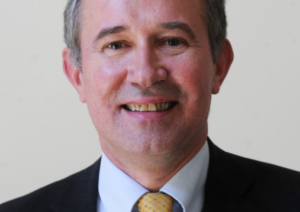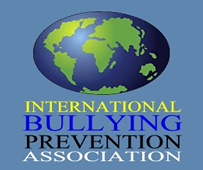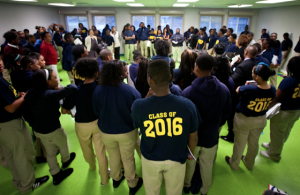News & Announcements
 Nigel Richardson, Leeds City Council director of children's services
Nigel Richardson, Leeds City Council director of children's services
The project of Hull, UK to become a restorative city has since spread to nearby city of Leeds. Both projects will be highlighted Thursday and Friday, November 8 & 9 at a conference put on by Hull Centre for Restorative Practice, "A Tale of Two Restorative Cities."
The following from an article about the conference in the Yorkshire Evening Post highlights the focus on working with families and others outside the criminal justice system:
The conference which takes place on Thursday and Friday will include a presentation on how “restorative practice” is being used to resolve family issues within Leeds.
 Photo by Kate Ter Haar at Flickr Creative Commons
Photo by Kate Ter Haar at Flickr Creative Commons
More and more frequently I come across so many articles about school implementing various restorative practices programs in a given day or week that I might end up putting them aside or simply posting links on IIRP's Twitter feed. Today, though, I thought I'd just post a brief summary of four links that came through last week so people could get a sense of the types of story I'm seeing more and more frequently around the world:
MEND (Mediating Ends Negative Disagreements) – The Limestone District School Board and Youth Diversion (in Kingston in Canada) have been working together for the past six years to develop a new strategy to deal with conflict. "What we have been doing is putting a restorative approach into schools with the idea that, rather than focusing on blame and punishment we are focusing on developing and maintaining relationships and making sure that people understand the impact of their actions on one another," explained Judy Tetlow.
School board battles bullying – Also in Ontario, Canada, this article notes that "The Ontario Legislation passed an Accepting Schools Act in September which gives administrators and teachers an opportunity to address not only the victims, but the bullies too."
This week's "Sunday Video" comes from Colorado, which hosted its 1st statewide Restorative Justice summit in August. Dominic Barter and Peter Block were keynote speakers. But this six-minute video also demonstrates the open space format used to generate active participation from all attendees.
For another perspective on the summit, there's an episode – 47 minutes – of the Unitive Justice by Sylvia Clute podcast. Clute attended the summit and shares her experience in depth. Click here to listen.
 IIRP Instructor Lee Rush will be presenting a workshop entitled “So What Happens Next?: Using a Restorative Practice After a Bullying Incident,” at the 2012 International Bullying Prevention Association’s (IBPA) annual conference to be held next week from November 4-6 in Kansas City, MO.
IIRP Instructor Lee Rush will be presenting a workshop entitled “So What Happens Next?: Using a Restorative Practice After a Bullying Incident,” at the 2012 International Bullying Prevention Association’s (IBPA) annual conference to be held next week from November 4-6 in Kansas City, MO.
This 9th annual conference will be attracting over 700 persons from throughout North America and abroad.
“For many in our field, the intersection of using restorative practices in the interest of preventing bullying seems like a perfect fit,” Rush said. “However, the notion of facilitating a face-to-face conversation with involved students after an incident of bullying is much more controversial and raises many questions.”
IIRP director of continuing education John Bailie co-hosted an important webinar last week with Michigan State University's Rick Shafer and Washington University in St. Louis’s Molly Pierson. The topic of the webinar was an "Introduction to Restorative Justice" and was targeted to university student conduct administrators. In addition to responsive measures to wrongdoing on campus, time was also devoted to restorative practices for building community in residence halls.
Several dozen administrators from such schools as University of Wisconsin-Madison, Harvard, NYU, Reed College and University of California-Berkeley participated to learn how to bring restorative practices to their campus.
For those who could not participate, ASCA is making the webinar available for purchase in their online store here.
For more information about IIRP's Building Campus Community program, click here.
In Nova Scotia, two article discuss new policies to support restorative responses in schools throughout the province. Clare Mellor in the Chronicle Herald writes:
[T]he provincial Education and Justice departments announced they are putting together a provincewide framework for schools who want to use a restorative approach to managing conflict between students.
During the next three years, the two departments will share the $500,000 cost of implementing policies and a list of resources and contacts for schools that use the program.
I missed posting a video yesterday, so I'm making up for it today. This one-minute vid was posted along with an article at Voice Waves titled "Students and teachers find restorative justice more effective." The piece discusses a student who is upset about something happening in class and requests a restorative circle from the school dean. Most of the circles discussed in the article are responsive, but the video below, featuring restorative justice coordinator Robert Howard, seems to be promoting a more proactive use of restorative justice:
 This is big news from the United Kingdom, where national legislation is being considered to allow restorative justice for victims of adult crime. The Restorative Justice Council in UK sent this news flash out in a recent email:
This is big news from the United Kingdom, where national legislation is being considered to allow restorative justice for victims of adult crime. The Restorative Justice Council in UK sent this news flash out in a recent email:
In plans published today, new legislation for restorative justice with adult offenders and their victims will be introduced through an amendment to the Crime and Courts Bill. This is part of the Government’s response to the Punishment and Reform: effective community sentences consultation.
Here's from a piece by Ben Byrne in UK's The Guardian. In these first few paragraphs he makes a concise case for Restorative Justice for youth offenders:
Every local authority is grappling with the challenge of increasing demand for services at a time of severe financial constraint. To meet this challenge we will need new partnerships and new relationships with our residents to help us solve local problems.
One way to approach this challenge is to put restorative practice at the heart of a local authority's work. Surrey's restorative story started in youth justice and our impressive results mean we have tried to spread the principle across the work of the county council.
 Morning circle session for 9th graders at Plymouth Education Center in DetroitOn Tuesday, Melinda Clynes wrote an article in Model D, "a web-based magazine creating new narratives for Detroit since 2005," titled "City kids: How proactive restorative practices benefit all." Framing the argument for restorative practices in terms of the failures of No Child Left Behind, Clynes writes:
Morning circle session for 9th graders at Plymouth Education Center in DetroitOn Tuesday, Melinda Clynes wrote an article in Model D, "a web-based magazine creating new narratives for Detroit since 2005," titled "City kids: How proactive restorative practices benefit all." Framing the argument for restorative practices in terms of the failures of No Child Left Behind, Clynes writes:
While national education leaders try to repair the wrongs of public education, plotting their post No Child Left Behind moves, here in Detroit, some folks tout that school reform might better begin with developing and nurturing relationships among students, between students and teachers, and between schools and community.
